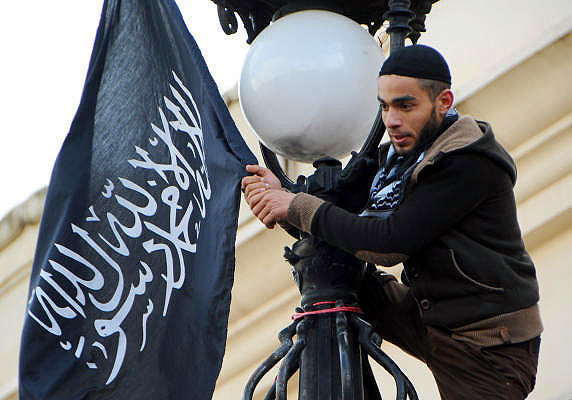Several politicians and analysts are trying to look closely and accurately into the state of confusion, tension, and failure that has characterized the experience of the ruling political groups and parties in Tunisia, Egypt, and Libya, ever since the outbreak of the Arab Spring revolutions. Perhaps the most important and dangerous trait that all these political groups share is their “exclusionary” nature. They have failed to accommodate different segments of society and represent them all, particularly at a highly sensitive time following on from the violent and impassioned uprisings. These groups were once part of the opposition category themselves; practicing their activities in secret under the severe oppression of the previous regimes. As a result, once in power they took on a retaliatory form, further intensifying the state of fragmentation and fuelling mistrust within society.
Islam’s discourse on politics in general is somewhat shallow. While we can find dozens of volumes and books on purity, worship, and other issues, there are very few books on “political fiqh”, and a clear lack of scholarly consensus. This means that we must use much discretion when talking about political Islam; no one alone can claim a full understanding, and no one should be able to impose this understanding upon others.
The “political Islam” groups that have come to power in the Arab Spring states have not followed in the footsteps of the Prophet Mohammed himself—peace be upon him—when he conquered Mecca. After the conquest, and while the prophet’s opponents were dreading his reaction, Mohammed announced a “day of mercy” and uttered his famous saying “Even he who enters the house of Abu Sufyan will be safe “, in reference to his prominent opponent at the time. The prophet added “Go your way, for you are free “, without punishing or taking revenge against anyone. This principle was later applied by two of the most renowned politicians of the twentieth century: Indian leader Mahatma Gandhi and the peerless South African Nelson Mandela. They both offered a full pardon to their former opponents and enemies, and even incorporated them into their new regimes to become part of the solution, rather than the problem. This is the difference between wisdom and political maturity on the one hand, and political adolescence on the other.
When one chooses to represent religion in the political domain, he must entail a greater moral responsibility because a huge amount of harm can be caused by his failure. Numerous examples of this can be seen in Tunisia, Egypt, and Libya, with a prevailing atmosphere of disappointment and frustration.
Rachid Ghannouchi and his Ennahda party could have risen above selfishness and arrogance by agreeing to assist Hamadi Jebali in forming a non-partisan government—in order to administer the country’s affairs in these hard times—without considering Jebali’s initiative as an attack or an affront. How could it be an attack, when Jebali himself represents the ruling party? However, the Ennahda party continued to adopt a policy of exclusion and bullying.
The same applies to what is happening now in Egypt under President Mursi’s government, with Prime Minister Hisham Qandil. A large section of the Egyptian people unanimously believe that Qandil has failed to manage the country’s affairs, and also that the position of prime minister requires someone of greater expertise. Furthermore, they believe his incompetent handling of the economic situation could prove the biggest danger of all. Nevertheless, the man continues to cling to his position out of “stubbornness and arrogance”, ignoring the demands of many Egyptians and describing them as a mob or corrupt remnants. In reality, this behavior is reminiscent of the style adopted by the very regimes the Arab Spring revolutions rose against in the first place.
Prophet Mohammed’s approach is a far cry from those who currently claim to be following in his footsteps in the name of political Islam. Mohammed did not advocate revenge, slander or suspicion, nor did he label others as traitors. Yet modern-day political Islam continues to generate social ills such as division and sedition, and this situation is exacerbated by specific groups claiming the exclusive right to speak, understand, and judge in the name of religion. The cost of this will not be paid by the current governments or regimes; it is the generations to come who will truly suffer.
Islamic groups came to power through democratic polls, but democracy has other fundamental criteria such as respecting the rights of all citizens and promoting justice, equality, and national unity. These principles seem completely alien to those in power today, and as a result the political Islam experience seems doomed to failure.

Trackbacks/Pingbacks